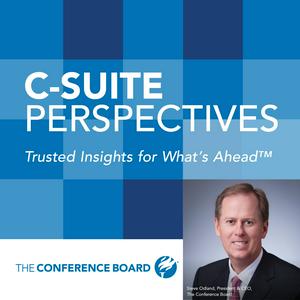Learn why companies need to understand AI's promise and potential drawbacks for environmental sustainability.
More than 60% of companies are using AI to support or advance environmental sustainability. What are the use cases they're exploring, and how can businesses also guard against the environmental risks of AI?
Join Steve Odland and guest Andrew Jones, PhD, principal researcher at the Governance & Sustainability Center of The Conference Board, to learn about the environmental impact of AI-focused data centers, how companies are capitalizing on AI for sustainability, and how sustainability leaders can demonstrate the ROI of AI applications.
For more from The Conference Board:
AI and Environmental Sustainability: Risks, Opportunities, and What Comes Next
Exiting International Climate Pacts Will Leave The US Isolated
AI Risk Disclosures in the S&P 500: Reputation, Cybersecurity, and Regulation


